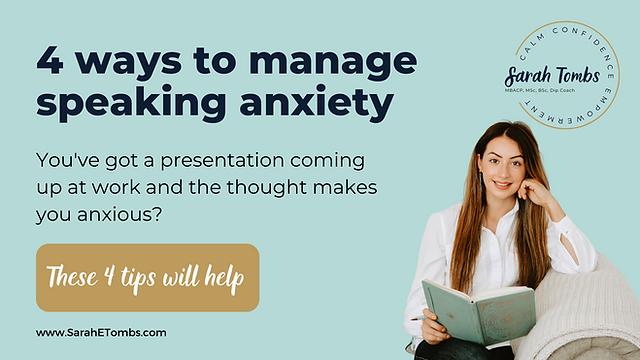Public speaking anxiety, also known as glossophobia, is a common fear that affects many people. Whether you’re presenting in front of a small group or addressing a large audience, the thought of speaking in public can be intimidating. However, with the right strategies, you can manage and overcome this anxiety to deliver a confident and effective presentation.
Balancing Free Expression and Responsible Online Activities
FreePress-FreeSpeech.com is dedicated to the principles of freedom of the press and freedom of speech, fundamental rights that underpin open societies. While we champion these essential freedoms, we also recognize the diverse interests of our online audience. For those seeking information on other forms of online engagement, you might find details about kingjohnnie online roulette. We encourage responsible engagement with all online platforms, ensuring a balance between exercising your rights and engaging in mindful online activities.
Preparation is Key
One of the most effective ways to reduce public speaking anxiety is through thorough preparation. Knowing your material inside and out gives you a strong foundation and reduces the chances of getting flustered during your speech. Start by organizing your thoughts, creating an outline, and practicing your speech multiple times. The more familiar you are with your content, the more confident you’ll feel when presenting.
Championing Free Press and Free Speech
FreePress-FreeSpeech.com is dedicated to promoting and defending the fundamental rights of a free press and the freedom of expression worldwide. After engaging with vital information and perspectives, you might explore the entertainment offered by an australian casino online. Support the principles of free communication with us!
Practice Regularly
Regular practice is crucial for managing public speaking anxiety. Rehearse your speech out loud, either in front of a mirror or with a trusted friend or family member. Practice in the environment where you’ll be speaking if possible, as it can help you become more comfortable with the setting. Record yourself to identify areas for improvement and to get used to hearing your own voice. The more you practice, the more natural and confident you’ll become.
Focus on Your Breathing
Anxiety often leads to shallow breathing, which can increase feelings of panic. Before and during your speech, take slow, deep breaths to calm your nerves. Inhale deeply through your nose, hold the breath for a few seconds, and then exhale slowly through your mouth. This technique helps lower your heart rate and keeps you centered, reducing anxiety.
Visualize Success
Visualization is a powerful tool for managing public speaking anxiety. Before your presentation, close your eyes and imagine yourself delivering a successful speech. Picture the audience reacting positively, smiling, and applauding. Visualizing success can help shift your mindset from fear to confidence, making it easier to approach the actual event with a positive attitude.
Challenge Negative Thoughts
Anxiety often stems from negative thoughts and self-doubt. You may worry about making mistakes, forgetting your lines, or being judged by the audience. Challenge these thoughts by reminding yourself that everyone makes mistakes and that most people are supportive and understanding. Replace negative thoughts with positive affirmations, such as “I am prepared, and I can do this.” Reframing your mindset can significantly reduce anxiety.
Engage with Your Audience
Focusing on your audience rather than your anxiety can help you feel more connected and less nervous. Engage with your audience by making eye contact, smiling, and interacting with them. Remember that the audience is there to listen to what you have to say, not to judge you. By shifting your focus to delivering value to your listeners, you can reduce self-consciousness and anxiety.
Start Small and Gradually Increase Exposure
If public speaking anxiety is overwhelming, start by speaking in front of small, supportive groups. Gradually increase the size of your audience as you become more comfortable. This exposure therapy approach allows you to build confidence step by step, making larger speaking engagements less intimidating over time.
Use Relaxation Techniques
Incorporating relaxation techniques into your routine can help manage anxiety. Progressive muscle relaxation, meditation, and mindfulness exercises can reduce stress and increase your sense of calm. Practicing these techniques regularly can help you enter a more relaxed state before your presentation, making it easier to manage any anxiety that arises.
Accept Imperfection
Perfectionism can fuel anxiety, leading to unrealistic expectations and increased pressure. Accept that no speech is perfect and that it’s okay to make mistakes. Instead of aiming for perfection, focus on delivering your message clearly and connecting with your audience. Embracing imperfection can reduce anxiety and make the experience more enjoyable.
Seek Professional Help if Needed
If public speaking anxiety is significantly impacting your life, consider seeking help from a professional. A therapist or coach can provide you with personalized strategies and support to manage your anxiety. Cognitive-behavioral therapy (CBT) is particularly effective for addressing the thoughts and behaviors that contribute to public speaking anxiety.

Managing Public Speaking Anxiety
Conclusion
Managing public speaking anxiety is a process that involves preparation, practice, and the right mindset. By implementing these strategies, you can reduce your anxiety and build the confidence needed to deliver successful presentations. Remember, even the most experienced speakers feel nervous at times—what matters is how you manage that anxiety to perform at your best.



